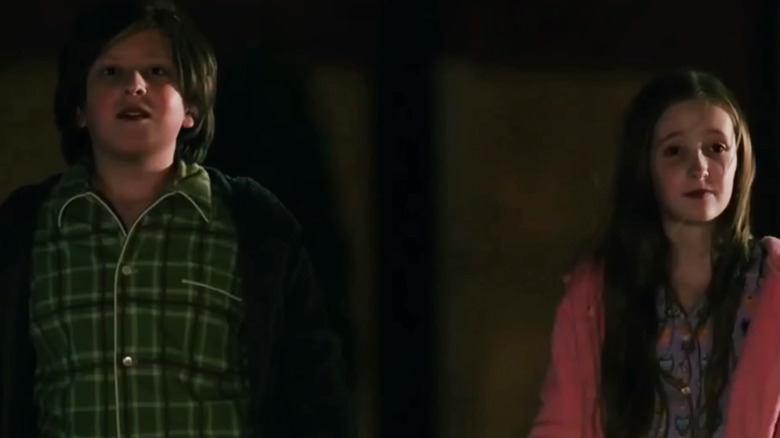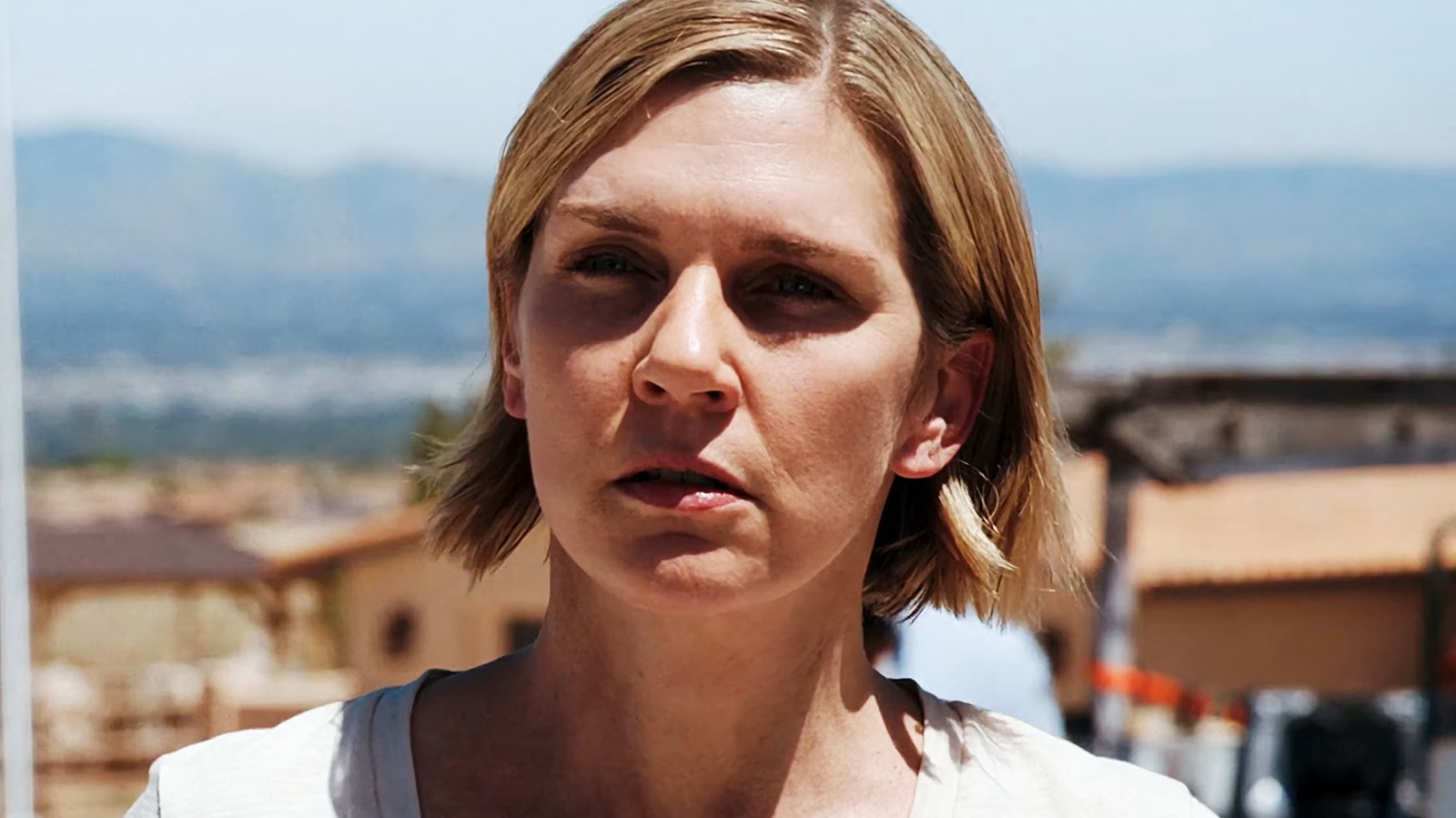If there’s one series on Apple TV+ that everyone’s quietly talking about but nobody saw coming, it’s definitely Pluribus. Vince Gilligan’s return to television after years away builds a world that is far more unsettling and far more playful than anyone expected. This paranoia narrative running through modern science fiction starts tying itself, from the very first episode, to the memory of classic horror cinema with the lightest yet most deliberate touches.
The most obvious of these is, without question, a reimagining of Stanley Kubrick’s iconic “twins” moment from The Shining.
Creepy Siblings: The Whisper Coming Down the Hall from Albuquerque
In the pilot episode “We Is Us,” Carol Sturka (Rhea Seehorn) is trying to get home after the town’s first day of chaos. She’s stuck at her own front door—no keys, the street dead silent, the air prickling. At that exact moment, two children (played by Teagan Sucherman and Isak Tufic) appear on the neighbour’s stairs in chilling unison.
They’re supposedly there to help… but their posture, their stare, their rhythm—everything echoes the Grady twins saying “Come play with us” in Kubrick’s corridor.
Gilligan doesn’t even try to hide it. In a note he wrote for Letterboxd, he openly admits:
“Yes—we borrowed those two kids from Kubrick’s even creepier twins.”
This isn’t just a reference; it’s a deliberate reverberation. In the world of Pluribus, past fears bleed into today’s perception of reality.

Gilligan’s Kubrick Obsession: A Tradition Continues
It’s not a one-off homage. When you look across Gilligan’s filmography, Kubrick’s shadow is always lurking. Even the unforgettable axe-carrying scene with the Salamanca cousins in Breaking Bad was nodding to The Shining.
But in Pluribus the influence is much more layered:
- An isolated writer
- A mind slowly coming apart
- A town on the brink of societal decay
- The blurred line between reality and hallucination
Gilligan himself laughs about the parallels:
“A writer, alcohol, and deep isolation… that’s literally the premise of The Shining.”
The Real Echo of The Shining: Reality or Carol’s Mind?
The hints Gilligan drops between the lines on Letterboxd point to a much bigger question. He specifically calls out Jack Nicholson’s Jack Torrance being “somehow already crazy” before they even reach the hotel:
“Why is Jack already nuts from the start? What does that tell us?”
That’s where the mystery of Pluribus begins to open up.
Maybe:
- The chaos in Albuquerque
- The viral outbreak
- The surreal encounters
- The neighbour kids’ “too-perfect” synchrony
- Carol’s increasingly fractured perception
…none of it is actually happening.
Gilligan’s reading suggests the show’s central enigma is: who’s really losing their mind—the characters or the world itself?
Pluribus: A Modern Body Snatchers, Holding Hands with Kubrick
At its core, the series feels like a contemporary update of Invasion of the Body Snatchers: a story of an invasion that spreads via a virus, rapidly replacing humans with “something else.” Yet Gilligan fuses that subgenre with classic horror language, weaving both a societal and a psychological collapse.
Result: science fiction, psychological thriller, and the ghosts of popular culture all converge in a single story.
Pluribus: A Modern Nightmare Written with Kubrick’s Ghost
Pluribus tells a completely original story, but you can feel Stanley Kubrick’s cold genius in its roots. This is far more than an iconic image callback: Gilligan placing his own character Carol Sturka alongside Jack Torrance’s fate signals that the series is heading down a much darker path in the long run.
When reality cracks, the first thing to fall isn’t the light—it’s the story.
And Pluribus shows the first fracture of that break right in the pilot.
The series is streaming on Apple TV+.
Be prepared: in this story, everyone has to look in the mirror at some point.














